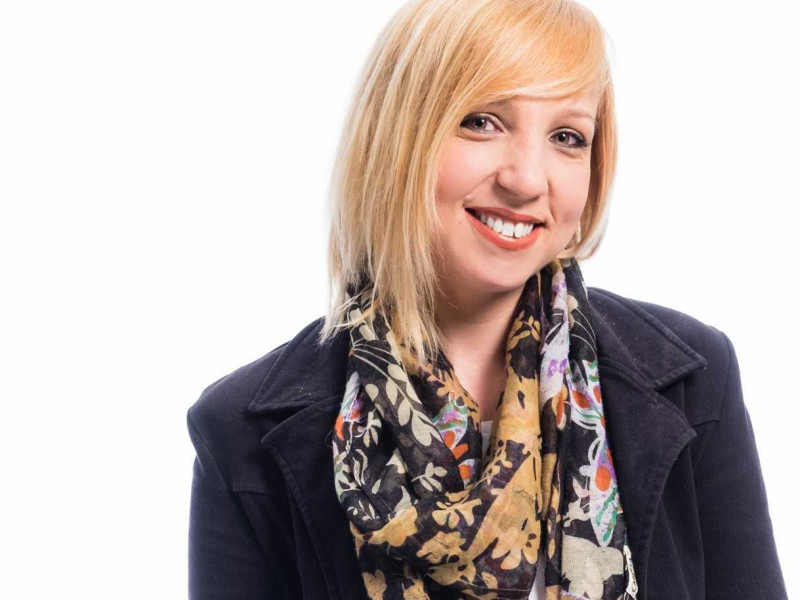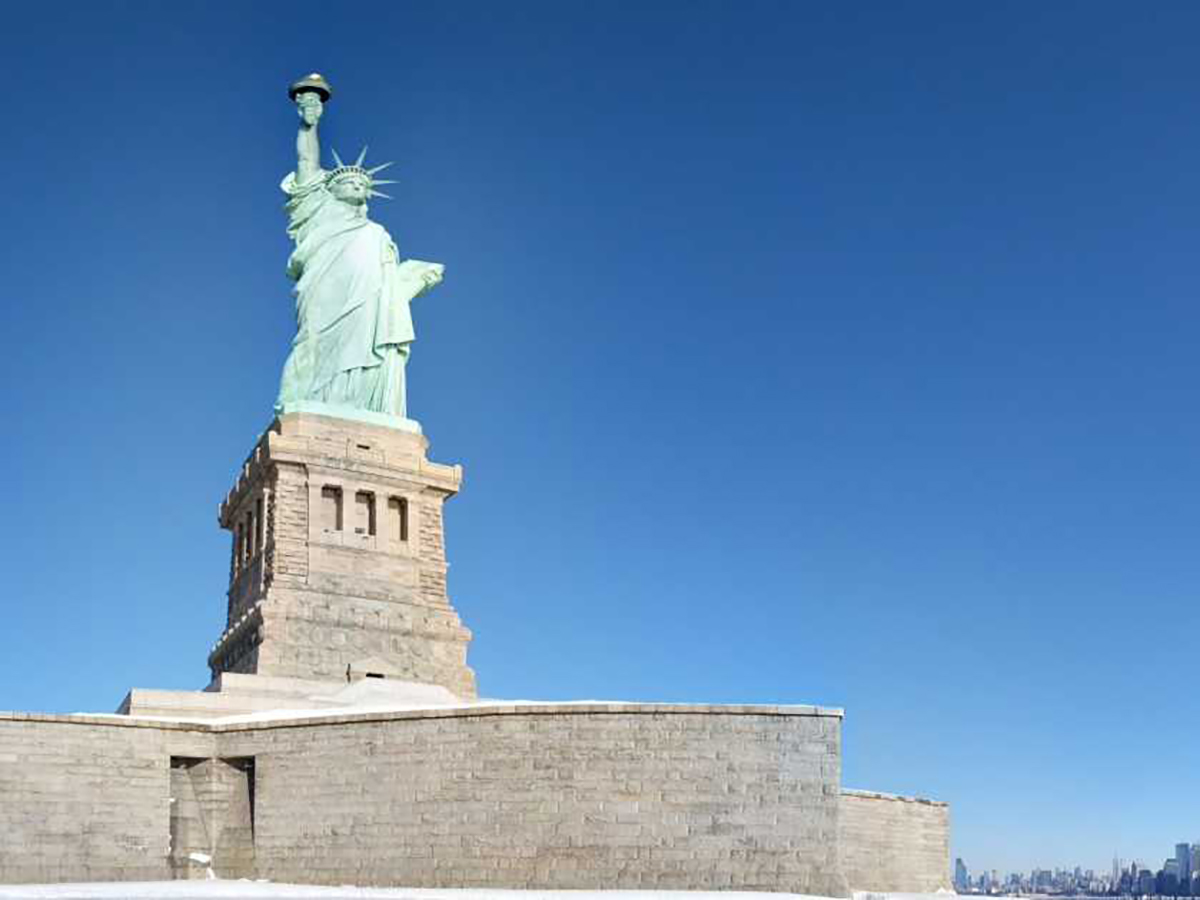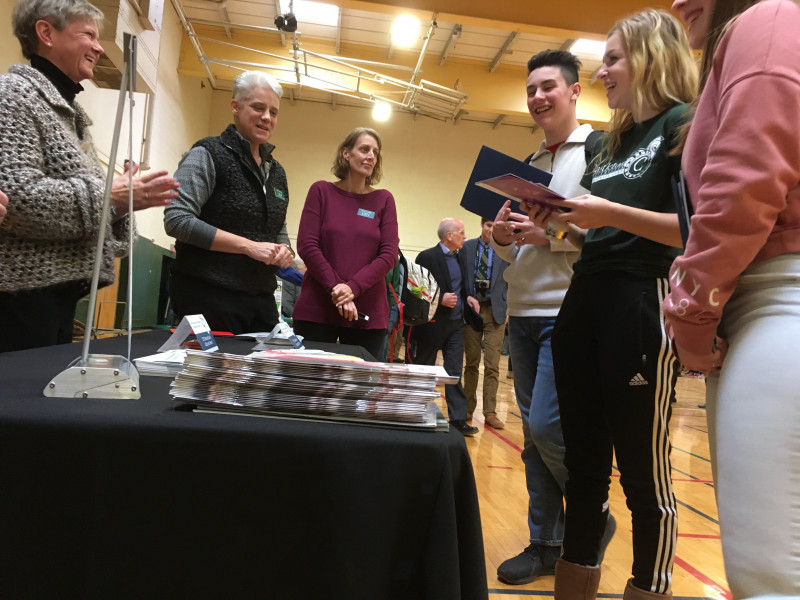
The views expressed in this article are those of the author, and do not necessarily reflect the policies or positions of CCV.
You can tell a native New Yorker from a non-native by how aware they choose to be of their presence on the subway. They sleep, ensured by their city-formed adaptation to waking up just before their stop. They read books. Before cell phones, newspapers were likely a popular form of dissociating. As I look around the J train, however, I see faces illuminated by screens: Glimpses of what appears to be an Arabic translation of Harry Potter. Someone using an app to learn Spanish while their child watches Japanese cartoons in English. I grip a metal pole for balance, making every effort to appear as though I’ve done so many times, and make these observations with a question in my mind: is America a melting pot?
The human race has an ongoing obsession with understanding its universe, manifested in an endless effort to categorize it. National identity is no exception. In the United States, an identity crisis has run rampant since our founding. The desire to create a category all our own has produced the self-inflicted label of a “melting pot society.” Yet, despite evident progress, we continue to fall short of what might be an unreasonable expectation.
If the United States were the melting pot it claims to be, an American would be anyone who calls this country home. Different cultures would, theoretically, be boiled down to form an indistinguishable new identity in which ethnicity is not a factor. As a nation, however, we find it difficult to consider anyone who is not white and English-speaking as American as someone who is. Even when non-whites are validated as Americans, more often than not they are subcategorized based on their ethnicity. In a true melting pot society, there would be no classification such as “African American” or “Chinese American.” These distinctions prove that a person’s ethnicity is fundamental to the way they perceive themselves and others, and therefore has not been lost to any one, overpowering identity.
The United States’ expectation of cultures to mix, sacrificing their original compositions, is actually an expectation of assimilation. Ethnicities are meant to become melted-down versions of themselves, no longer distinguishable. I met with the Black Student Union at Brooklyn Tech High School, one of the largest high schools in America, with over six and a half thousand students, to ask their thoughts on my question, “Is America a melting pot?” Their answer was a resounding, unanimous, unchallenged, “No.”
Not one member felt they were a part of this ideology. Marginalized groups resist being poured into an American mold, despite embracing many parts of American life. Why? Because human beings naturally cherish our origins in a way that will never erase divisions of race and ethnicity. Despite this, the success of non-white immigrants is continuously measured by their willingness to go against this natural desire for preservation. Beliefs that challenge the way of life in the United States are ignored rather than embraced, barred from being added to the pot for fear of altering its contents. We forget that American culture itself is a fabrication influenced by so many others that it is largely undefined. The United States was founded at a time when the rest of the world had already developed cultural identities, and anything we have done since has been a rushed effort to catch up.
In my ten-day glimpse of New York City, I realized why it has become a globally recognized symbol of the United States. Residing in the wake of Lady Liberty herself, the city is an embodiment of diversity, yet it remains so profoundly compartmentalized that the distance of a single block can transport you between worlds. Completely escaping influence from any society you exist in is impossible; however, immigrants to the United States value their diversity enough to loyally preserve aspects of it. Anywhere you look you will find proof of enduring diversity, refusing to become unrecognizable among the masses and demanding acknowledgment of its own. We are not a melting pot. This is not necessarily a negative reflection on America. Instead, it implies that we are a patchwork of variance which can always be extended, never under threat of overflowing.
Katherine De Ruyck is a 21-year-old student from Jericho, Vermont enrolled in the Liberal Studies degree program at CCV-Winooski. She is focusing her studies on sociological approaches to both history and politics, and is planning to graduate in 2019. She participated in the fall 2017 study away class, Ethnicity and Diversity in the U.S., which traveled to New York City in January.



